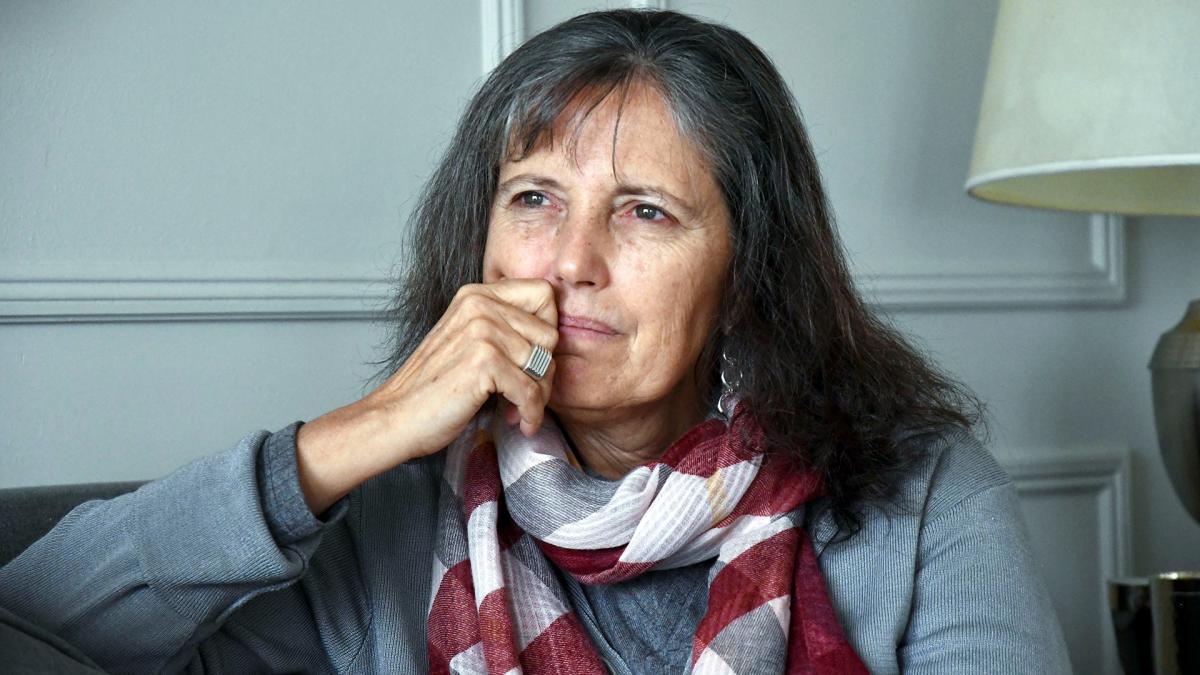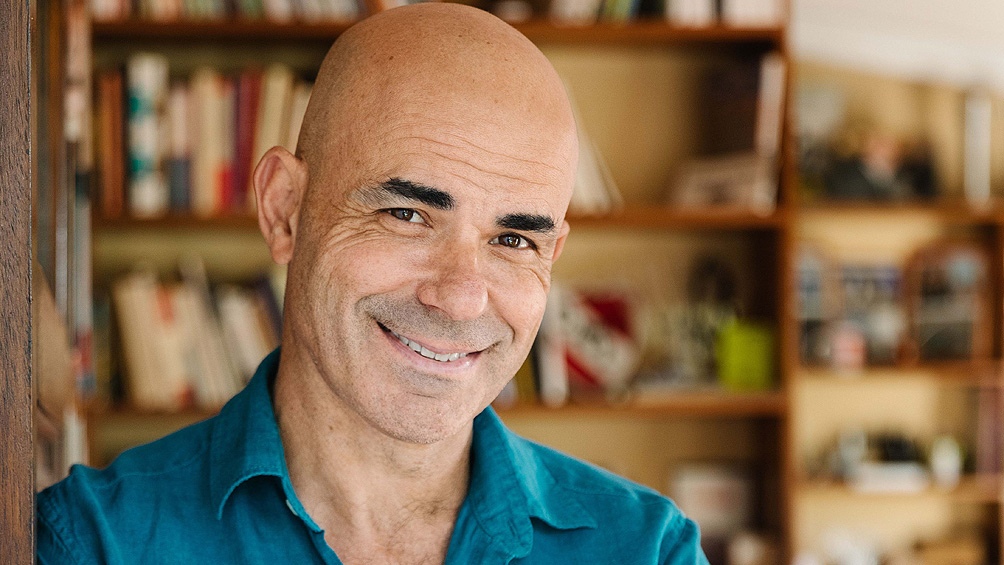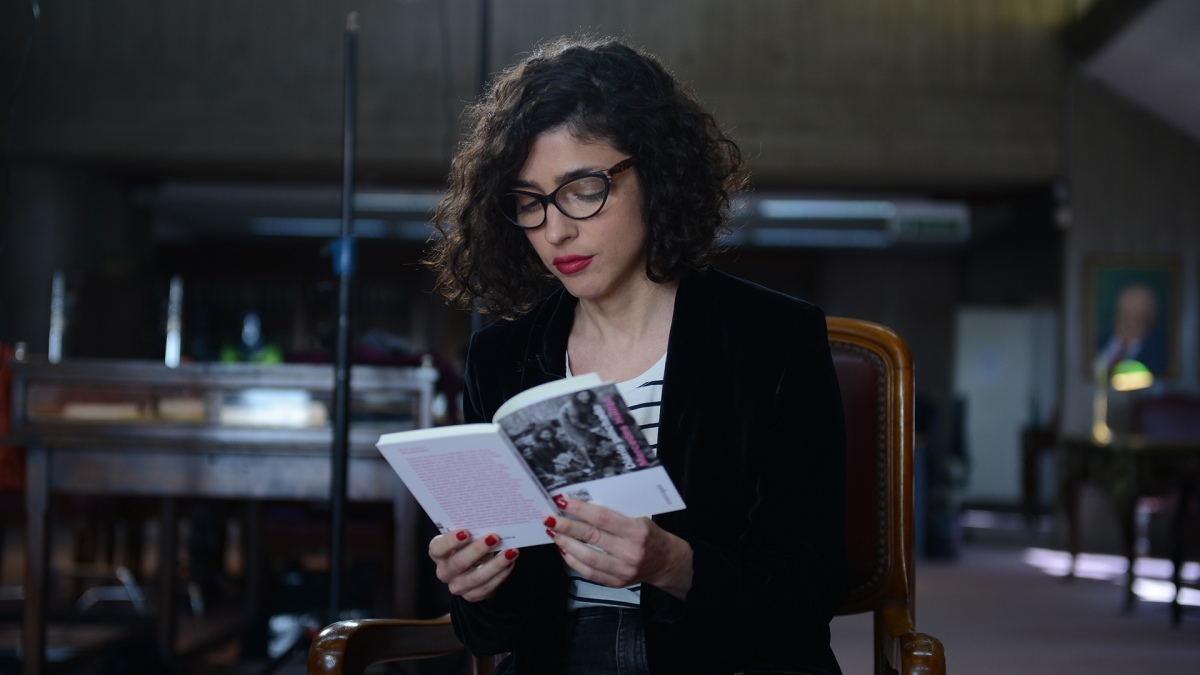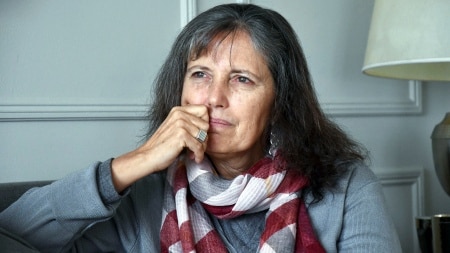 Claudia Piñeiro. / Photo: Gustavo Amarelle
Claudia Piñeiro. / Photo: Gustavo Amarelle
Although the boundaries between scriptures are increasingly in dispute, the non-fiction books we will read in 2023 promise surprises from local names, new titles from contemporary global thinkers, agendas in tune with the themes of this age-technologies, gender and medium. environment- and deepen the field outside the convention giving rise to the own voice with texts that in the look of the biographical material propose alternative ways of thinking about reality.
In the local arena, there are some surprises: Claudia Piñeiro He leaves the novelist’s suit and publishes in 2023 an essay of which his publishing house Penguin Random House is still not making much progress. Who we do know a little more about is Eduardo Sacherithe writer and teacher of History, who continues his series of Argentine history with “Los días de la violencia”, which is located between 1820 and 1852. And books by the psychoanalyst are expected from the Planeta label Gabriel Rolonthe historian Felipe Pignathe journalist Maria O’Donnell and the philosopher Dario Sztajnszrajber.
Of international contemporary thinkers who have drawn their own lines of theories and views, there are three lucid ones who arrive in 2023 with new books: the Slovenian philosopher Slavoj Zizekthe Frenchman Bruno Latour and the German Boris Groys.
After thinking about the pandemic and global capitalism and faithful to his ironic style, Zizek publishes, together with Godot, “Hypocrisy”, where he walks through the foundations of modern Western civilizations. “We live in an extraordinary era in which there is no tradition on which we can base our identity (…) This New World Disorder, this worldless civilization that is emerging little by little, undoubtedly affects young people who oscillate between intensity of living fully and the desire to succeed,” he writes.
 Eduardo Sacheri.
Eduardo Sacheri.
While Groys presents “Becoming a work of art” (Black Box) in which he explores how everyone has not only the right but also the obligation to practice self-design. From the Frenchman Latour, who died this year and who has bequeathed many texts on the environmental crisis, Sigo XXI publishes “Ecological-Political Manifesto. How to Build an Ecological Class Conscious and Proud of Itself”, a book that also bears the signature of sociologist Nikolaj Schultz , who has investigated what the philosopher calls “the geosocial classes”.
In a more literary key, another of the international novelties of the coming year is “V13”the coverage he did Emmanuel Carrere on the trial of the 2015 attacks in Paris. The author of “The adversary” he covered all the hearings over ten months for el País and L’Obs. “We don’t leave the process the same way we entered it,” he said about that experience that he captured in this book already published in French and that will arrive next May from Anagrama.
If this 2022 reaffirmed hybrid books, which explore the power of one’s own voice and the material of the real as a writing engine, next year this line of texts that go to the crossroads, indomitable from any classification, continues. At these unexpected intersections the publication of “Diary of the Scattering” (Mansalva), musician, writer and actress Rosario Blefari deceased in 2020, of which the extraordinary “Money Diary” was also published postmortem.
Vinyl publishes in April a text of Martin Felipe Castagnet, the writer who in 2021 was chosen among the best young narrators in Spanish. His name is “Newly Opened Eyes” and it is the profile of the relationship with his grandmother throughout his life, with whom he spoke on the phone for more than fifteen years. The same publisher anticipates the launch of “Short Treatise on Friendship”from Joana D’Alessio an essay written from the walks and conversations that the author had with her friends while walking through the city of Buenos Aires in the fall of 2021.
In this plot, Entropía proposes a book by the journalist and poet Mercedes Halfona memoir about the father’s life, while DocumentA/Escénicas, in its Escribir collection, anticipates that it will publish Camila Sosa Villada. Liliana Villanueva brings a novelty from the hand of Blatt and Rios: “East Winds”, a chronicle that this time travels through China, as it did before through Germany and Russia. Foam Pages anticipates a book by the Mexican Jorge Volpi: “Enraged”in which he opens up to classical music and social networks, to writing and politics, to the envy of creation and the sewers of power.
 Mercedes Halfon.
Mercedes Halfon.
After a year in which she inaugurated the face-to-face return of the Filba festival with her fragments in favor of the unruly, when she articulated poetry with theories of Ludwig Wittgenstein, Theodor Adorno and Paul Valery, the writer and essayist Maria Negroni Now he returns to writing about literature, in a volume entitled “The Art of Mistake” (Entropía), where he dissects readings that have interested him in twenty articles written with his always sharp prose.
It is also edited “Opening the world from the eye of the poem. Alicia Genovese” made up of essays that inquire into what poetry “can” – “capable of creating a place for all questions, a space to coexist with the visible and the invisible”, it reads-; while Osvaldo Bossi publishes a non-fiction book entitled “The poet as a clown”, for Salta el pez.
Next year the Godot publishing house celebrates its 15th anniversary and to celebrate it in February publishes “Libraries”a choral book in which they write Selva Almada, Katya Adaui, Jazmina Barrera, Jorge Carrion, Luis Chitarroni, Maria Sonia Cristoff, Martin Kohan, Dolores Reyes or Reynaldo Sietecase, who give an account of their life experiences, growth and personal movements from their libraries. In turn, Carrión will present an essay on the theory of literature in the digital age and two texts produced by artificial intelligence.
On writers and writings, Ampersand anticipates for April “The Century of the Typewriter”from Martyn Lyonswhich captures the intensity of the relationship between writers and their typewriters from the 1880s to the 1980s, focusing on Henry James, Jack Kerouac, Agatha Christie, Georges Simenon, and Erle Stanley Gardner.
In honor of the idea of rarity that traces the editorial treasures, it is published “The Invention of Rare Books” (ampersand), de David McKittericwhere he explores the evolution of the concept taking examples from all over Europe and how collectors, dealers and libraries gradually came together to establish canons to identify them.
Another novelty that runs from the last lines of writing that he has had Mario Vargas Llosa more linked to his political position is the volume “A Barbarian in Paris” (Penguin Random House), a set of texts by the writer about French writers, about his admission to the French Academy of Letters. The same publisher anticipates other names that are added to the non-fiction catalog, still without confirmed titles: the Italian Natalia Ginzburgmusician and punk artist Patti Smiththe feminist writer Rebecca Solnit and an unpublished by the novelist and editor Toni Morrison. Planeta, for its part, promises new books on Bell Hooksthe writer and feminist activist who died in 2021, and the edition of the complete works of Enrique Pichón Riviere.
In its desire to develop a repertoire of critical resources, Caja Negra brings as a novelty “Delphi” from Clare Pollardthe first book translated into Spanish by the English writer and playwright who here tries to write a book about the forms that prophecy takes over time and becomes obsessed with prediction methods while the planet collapses and the covid crisis intrudes in your privacy.
On this dividing border, even if you want more conventional essay is strengthened with new books where the phenomena are put in front to be captured and looked at again: food, environment, technique and technology, future, democracies, are some of the axes highlights of the 2023 thematic agenda.
For example, Eterna Cadencia edits “Life is not useful” by the indigenous leader and Brazilian philosopher Ailton Krenak; Economic Culture Fund presents “History of Food” from Jacques Attaliwhere he covers the history of food and exposes the economic, ideological and political power of the industry, and Punto de Encuentro launches “Trash is everything that is wrong”, by Veronica Ocvirk.
Along the same lines, the new label presented by Adriana Hidalgo, “Interferencias”, aims to build a map of contemporary thought and among its first titles is “Facing the planetary. Intertwined humanism and swarm politics” by William E. Connolly , where he rethinks the nature/humanity relationship.


